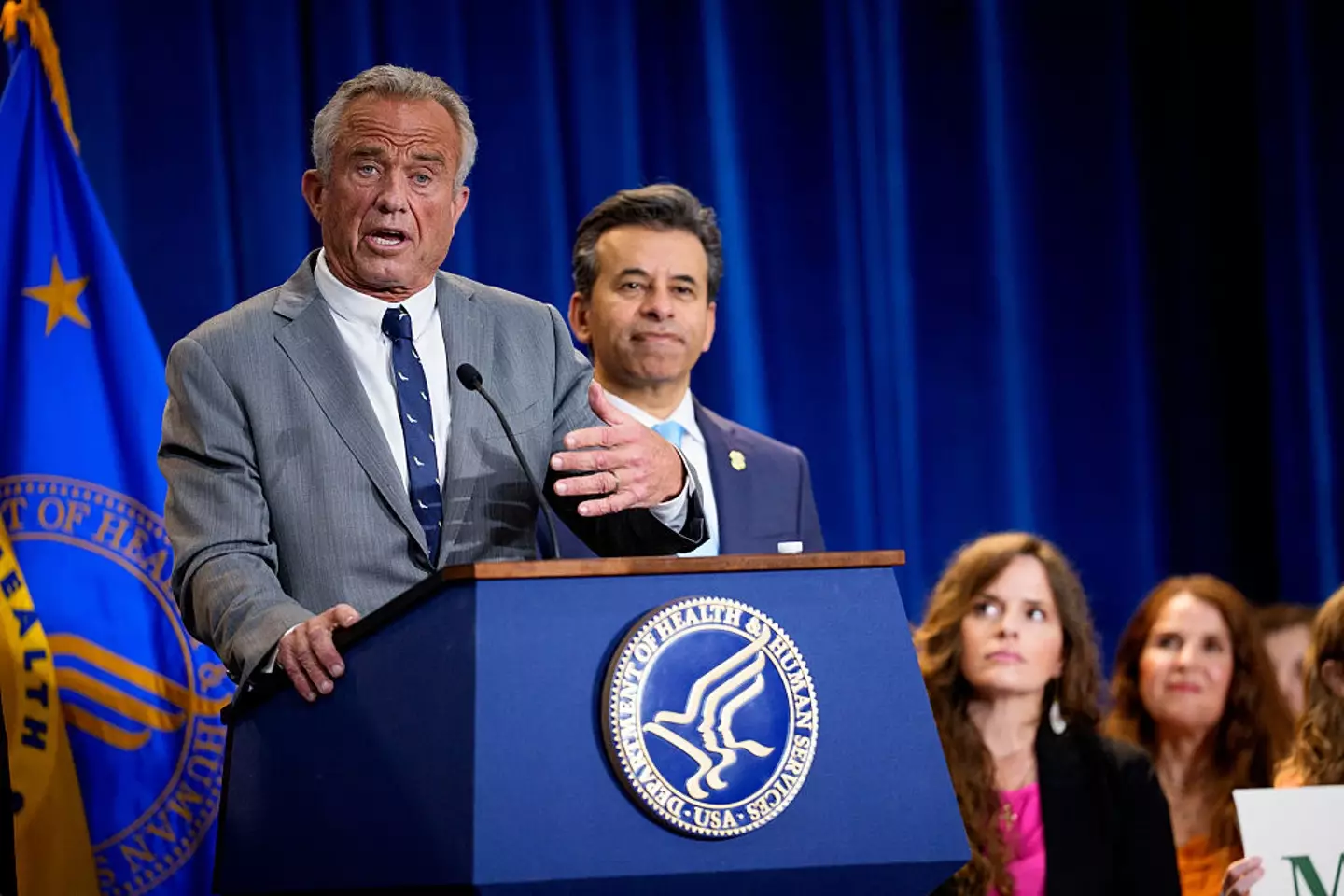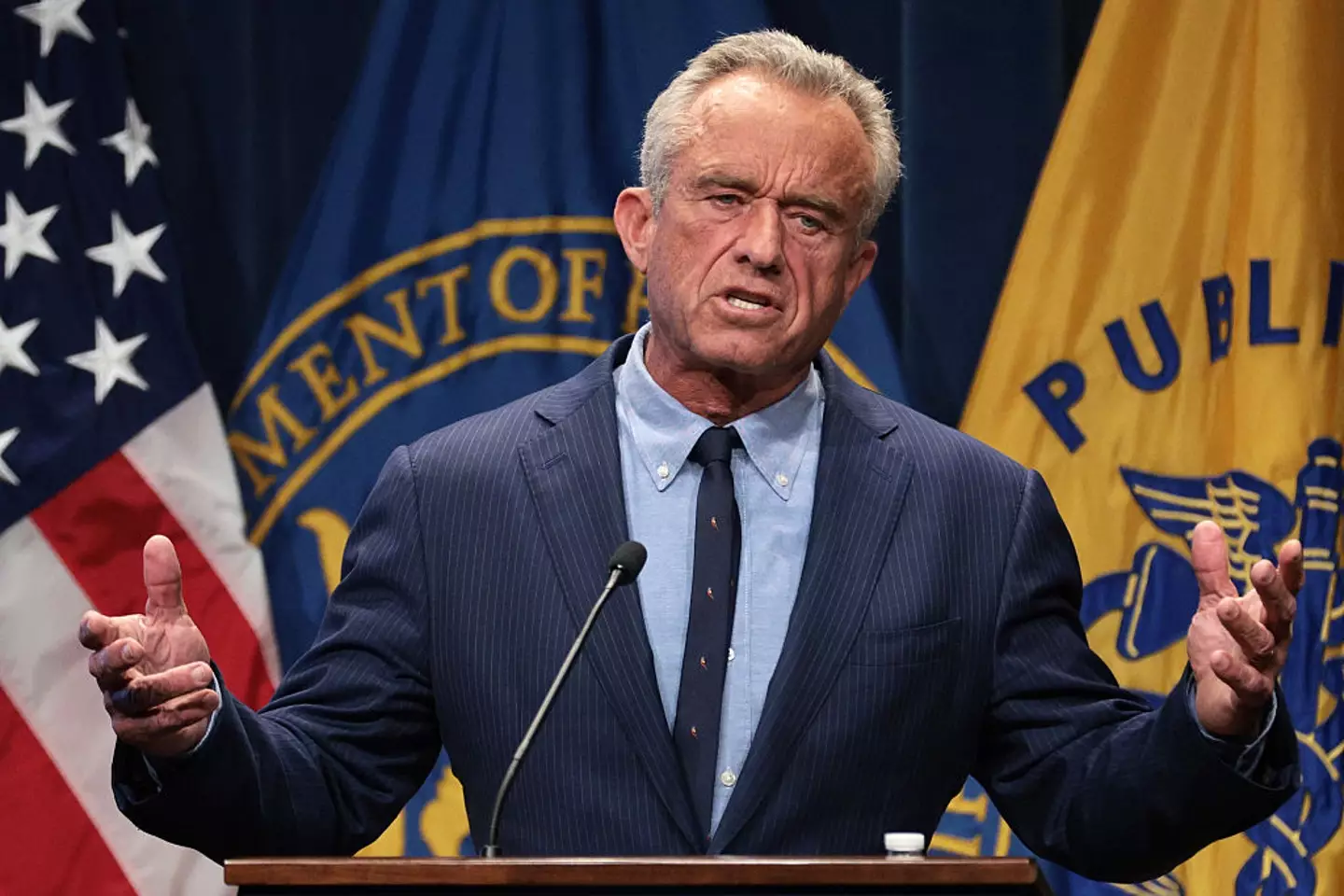Advocates for people with autism have described the idea as ‘terrifying’

Robert F. Kennedy Jr. has been hit with backlash over his efforts to study autism by obtaining private medical records and launching a registry to track Americans with the condition.
Autism is described by the Mayo Clinic as a ‘condition related to brain development’ which can present differently depending on the person – but RFK Jr., the secretary of the Department of Health and Human Services, has suggested the condition is preventable and even claimed there has been an ‘autism epidemic’ at play.
Speaking at a Cabinet meeting at the White House on April 17, Kennedy said: “We’ve launched a massive testing and research effort that’s going to involve hundreds of scientists from around the world. In September, we will know what has caused the autism epidemic and we’ll be able to eliminate those exposures.”


RFK Jr. said the study will involve ‘hundreds’ of scientists (Andrew Harnik/Getty Images)
As part of the study, the National Institutes of Health (NIH) announced on Monday (April 21) that it is gathering private medical records from a number of federal and commercial databases which will allow researchers chosen for Kennedy’s study to look at ‘comprehensive’ patient data with ‘broad coverage’ of the US population.
“The idea of the platform is that the existing data resources are often fragmented and difficult to obtain,” NIH Director Dr. Jay Bhattacharya said, per CBS News. “The NIH itself will often pay multiple times for the same data resource. Even data resources that are within the federal government are difficult to obtain.”
The data will include medication records from pharmacy chains, lab testing and genomics data from patients treated by the Department of Veterans Affairs and Indian Health Service, claims from private insurers, and data from smartwatches and fitness trackers.
The NIH is also in talks with the Centers for Medicare and Medicaid Services to try and broaden agreements which govern access to their data.


Kennedy is the secretary of the Department of Health and Human Services (Alex Wong/Getty Images)
The researchers studying the records will consist of 10 or 20 outside groups chosen ‘through normal NIH processes’, Bhattacharya said. While the teams will have access to the private medical data, Bhattacharya said they will not be able to download it and promised ‘state of the art protections’ around confidentiality.
Along with the data study, the NIH will launch a new disease registry to track Americans with autism.
Bhattacharya said this window into ‘real-time health monitoring’ aimed to provide ‘a robust and secure computational data platform for chronic disease and autism research’, but the idea has been hit with backlash from advocates for people with autism.
One Twitter user, who said she is a ‘mother of a child with autism’, made clear she did not ‘approve’ of the NIH gathering medical records for the study.
Describing the idea as ‘terrifying’, she wrote: “As a mother of a child with autism I don’t approve this. My son’s medical records should stay private. We need more funding for programs that benefit our children not “studies” that don’t help them.”
Another user wrote: “I do not consent to this. This is not ok.”
Bhattacharya said the NIH is planning a ‘rapid timeline’ to share the findings of the study.



